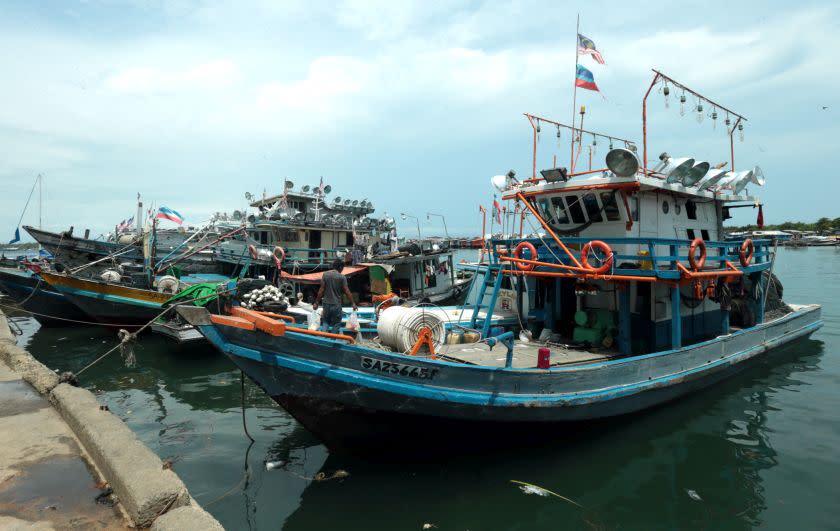Sabah govt to ban fishing trawlers in bid to protect environment

KOTA KINABALU, Sept 3 — Sabah, a known seafood haven, is working on its own fisheries enactment that will increase regulation on fishing activities, including banning fishing trawlers in the future, in a bid to protect its fish resources, coral reefs as well as shark population.
Sabah Agricultural and Food Industries Minister Datuk Junz Wong said that the move was in its future plans, which will give ample time and opportunity for fishermen to adjust to the change.
“In the blueprint we are actually scrutinising now, we haven’t actually come to the policies part, but our plan is to increase the people’s income and we have talked about trawlers.
“We should be banning it, but it is incoming, not now. We are going to ban it in the future so trawler operators have time to adjust, knowing when it will be stopped,” said Wong.
The Tanjung Aru assemblyman said that trawlers are among the menaces to the shark population, which the state has talked about protecting, and there are no regulations to the catching of sharks, leading to a harvest of juvenile fish.
“In our policy, we will ban destruction of corals altogether in Sabah. It’s very difficult actually for the Maritime authorities to monitor our seas, we have foreign boats that can operate, some cannot. So to protect our seas, the way forward is ban trawlers altogether,” said Wong, adding that it would still have to be decided at the Cabinet level.
The fisheries and aquaculture industry in Sabah produces about 200,000 metric tonnes of fish annually and contributes some 2.8 per cent to the State’s annual Gross Domestic Product.
The major contributor to this is marine capture which takes up 80 per cent, where trawl fishing is by far the most common, accounting for more than half of the total fish landings.
Trawlers are known to cause damage to coral reefs as it involves dragging a net on the sea bed for bottom-living fish and marine life, including prawns and shrimp which are among Sabah’s most valuable marine exports.
The ban on trawlers is part of Sabah’s agriculture blueprint would eventually include enacting its own fisheries law, reducing its reliance on the federal Fisheries Act 1985 and give it jurisdiction over marine life protection and other matters.
Wong said the blueprint is expected to be launched by next month, or at the very least, by the end of the year.
“In the second phase we will be implementing our own fisheries enactment — Sabah doesn’t have our own fisheries enactment and the federal government is the one calling the shots. This will cover a lot of things such as the sizes of fish or lobsters you can catch or the sizes of crabs you can sell. Those with eggs will not be allowed.
“We must have our own laws because we are telling people not to catch this and that but there are no laws to enforce it. So that’s the problem we are facing, same with the shark issue,” Wong said.
He said Sabah is considering banning shark fishing in its waters when it establishes its own enactment.
“The state Cabinet will decide whether the sharks (and rays) should be included in the new enactment so we can ban shark fishing altogether in Sabah.
“There will come a time but now it’s too early it’s not up to us really to say we want to protect or not,” he said.
Related Articles Longer jail time among stiffer penalties for those guilty of fish bombing in Sabah Sabah and Singapore to establish strategic alliance, says minister Sabah to launch barter trade system for non-subsidised cooking oil products, says CM



